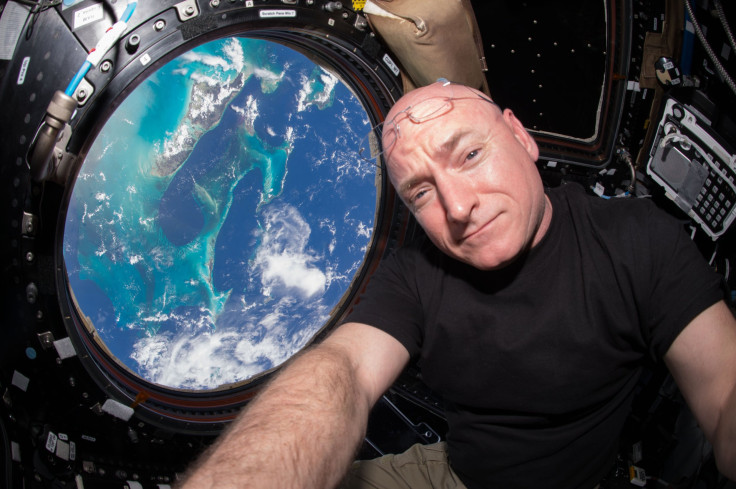What Does Space Smell Like? Astronaut Scott Kelly Answers Weird ISS Questions

Living aboard the International Space Station is something few people get to experience, so it might be hard to understand what an astronaut goes through during a stay up there. Scott Kelly, who returned home to Earth last year after 340 consecutive days in space, offered a view into his experiences during an “Ask Me Anything” post on Reddit Monday.
His audience appeared to be most interested in the smell of space. Kelly, who has spent a total of 520 days in space and went for a few spacewalks outside the ISS, explained that the ISS and outer space don’t smell the same.
“We store our garbage on board for a long period of time, so sometimes it can get smelly,” the astronaut wrote about his time on the station. “In general, though, it’s not an unpleasant smell on board.” But smells that come from the outside are different: “Space itself has a very unique smell, kind of like burning metal.”
When Kelly was doing work on the ISS during his spacewalks — what are known as extravehicular activity — he was not taking off his spacesuit and sniffing the vacuum of space. So how does he know what the great void smells like?
“When a volume was previously at vacuum, like after a space walk or a resupply ship arriving, when you open the hatch you can smell it,” he wrote.
Not all of his senses got a special space experience. He also pointed out during the AMA that space doesn’t have a sound — even though there are objects out there that could potentially make noise, there’s nothing in space for sound waves to travel on and reach your ear, which means they are effectively silenced.
During his Reddit question session, Kelly also got down to the dirty details of how bodily fluids operate in space. Astronauts have previously discussed what it’s like to poop, pee and shower on the ISS and Kelly added sneezing to the list: “If you don’t cover your sneeze-hole, something’s going to travel for miles and miles and miles.”
According to the astronaut, it took him about eight months to adjust to life back on Earth once he returned from his “year in space” mission. After having a salad for his first meal, Kelly spent the following days recovering from his journey in microgravity.
“I never felt like I was completely adapted to life in space, but the transition to space to me is easier than the transition back,” he said. “Took me about eight months to feel completely back to normal. The one thing I had to learn again was how to control my daily schedule and decide what I was going to do.”
He had medical care to help him adjust on a health level, but experienced swelling in his legs.
Although his leg swelling was the “most disturbing” health side effect to him back on Earth, he had different concerns while he was in orbit. Kelly noted that when he was on a six-month trip in 2011, his sister-in-law Gabby Giffords — a former congresswoman and the wife of astronaut Mark Kelly, Scott’s twin — was shot in Tucson while meeting with constituents. Six people, including a federal judge, were killed in the attack, and Giffords survived a gunshot wound to the head. Scott Kelly said his biggest safety concern while in space was about his loved ones.
“Any nervousness, if you want to call it that, for me, was always associated with the bad stuff that can happen to the people you care about on Earth,” he wrote.
© Copyright IBTimes 2025. All rights reserved.




















